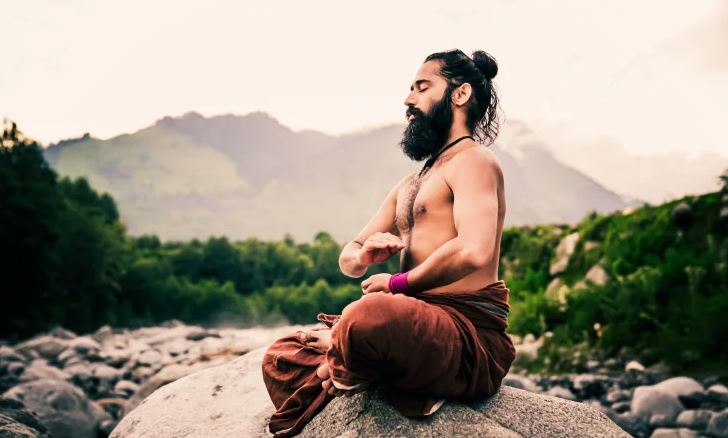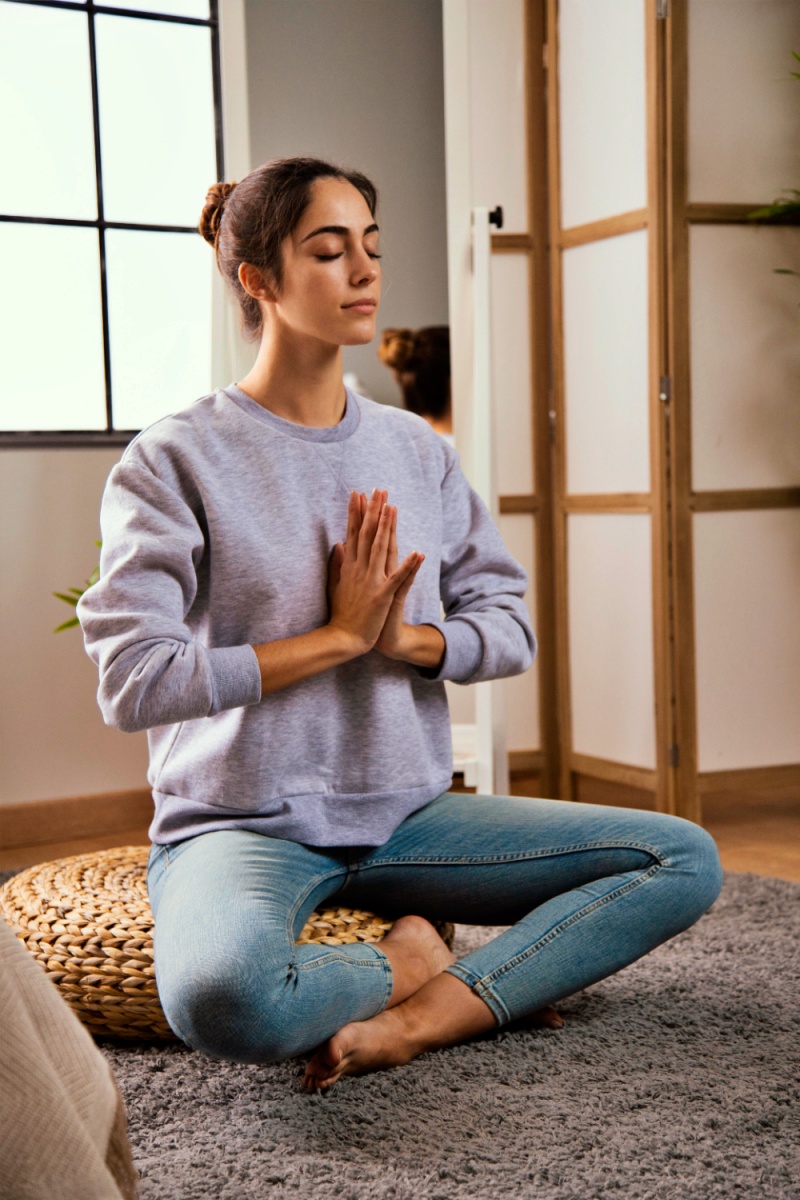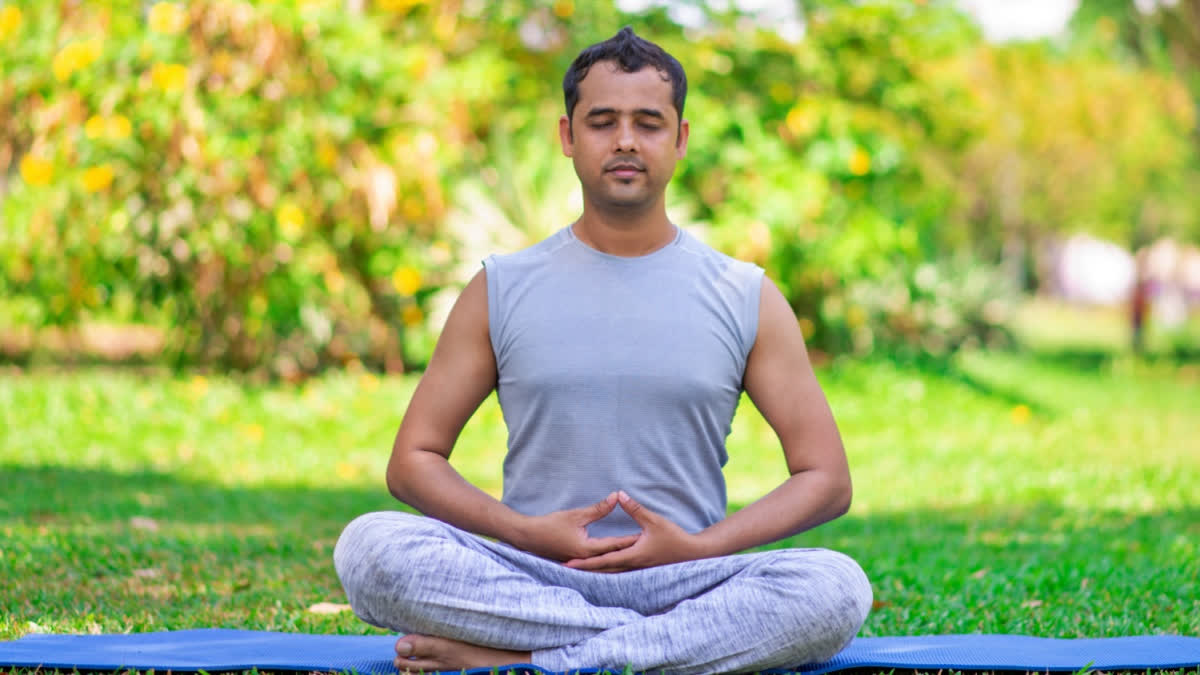Meditation is a timeless tradition rooted in ancient wisdom, often misunderstood as merely a way to calm the mind. In truth, it is a journey inward.
As Himalayan Siddhaa Akshar, Founder of Akshar Yoga Kendraa, puts it: “Meditation should be learnt from an expert so that one may understand the correct method, structure and system to it. But for beginners, you can start by finding a quiet space and sitting comfortably… Close your eyes and focus on your breath, noticing how it feels as you inhale and exhale naturally.”

What Is World Meditation Day?
Observed annually on May 21, it is a global celebration of the practice of meditation and its transformative impact on mental, physical and spiritual well-being. This day encourages people from all walks of life to pause, reflect and embrace the benefits of mindfulness and stillness. With stress and mental health challenges on the rise, World Meditation Day is a welcome pause for carving out time for inner peace and self-care.
Why Meditation Is Good For Health
Meditation is a scientifically proven method to improve overall well-being. The act of meditating calms the nervous system, reducing levels of stress hormones like cortisol and adrenaline. This, in turn, lowers blood pressure, improves heart health, and boosts the immune system.
Additionally, meditation fosters neuroplasticity (the brain’s ability to rewire itself). Regular practice enhances focus, memory, and emotional regulation by strengthening connections in the prefrontal cortex (responsible for decision-making) and calming the amygdala (the brain’s fear centre).
Meditation aids in pain management, improves sleep quality, and fosters physical relaxation. It also supports healthy digestion by calming the parasympathetic nervous system.

Regular practice reduces anxiety, depression, and negative thought patterns. It enhances clarity, creativity, and problem-solving skills, making it a valuable tool in today’s fast-paced world.
Beyond the physical and mental benefits, meditation connects you with your inner self. It encourages mindfulness, gratitude, and a sense of purpose, allowing you to live more authentically.
Broad Categories Of Meditation
If you want to practice meditation regularly but are confused about where to begin, here are a few universal forms to explore:
Mindfulness Meditation
Rooted in Buddhist traditions, this form involves focusing on the present moment. Himalayan Siddhaa Akshar’s advice to concentrate on your breath is a great starting point for mindfulness meditation.
Guided Meditation
This involves following the voice of a guide or teacher who leads you through a meditative journey. It is ideal for beginners seeking direction and structure.
Loving-Kindness Meditation (Metta)
This practice involves sending love and goodwill to yourself and others. It’s particularly effective for fostering compassion and reducing feelings of anger or resentment.
Transcendental Meditation (TM)
In TM, practitioners silently repeat a mantra to achieve a state of restful awareness. This method is taught by certified instructors and is great for those seeking a structured approach. Hollywood filmmaker David Lynch is a proponent of TM.
Movement-Based Meditation
Yoga, Tai Chi, and Qigong incorporate mindful movement to bring the body and mind into harmony. These are perfect for those who find sitting still challenging.
Tips For Starting Your Meditation Practice
- Find a spot where you won’t be disturbed. Use a cushion, chair, or yoga mat to sit comfortably.
- Begin with just five minutes a day. Gradually increase the time as you get comfortable.
- Be patient. Meditation is not about stopping your thoughts but learning to observe them without judgement.
- Apps like Headspace and Calm, or YouTube videos can provide guidance.
- Consistency is key. Pick a time each day (morning, lunch break, or before bed) and stick to it.
Meditation teaches you to embrace the present moment, to let go of what you cannot control, and to find peace within yourself. On this World Meditation Day, take the first step toward cultivating a deeper connection with your mind, body, and soul. Start with a single breath, a single moment of stillness. From there, the possibilities are endless.
Sources:
https://pmc.ncbi.nlm.nih.gov/articles/PMC6312586/
https://link.springer.com/article/10.1007/s11916-023-01119-0



